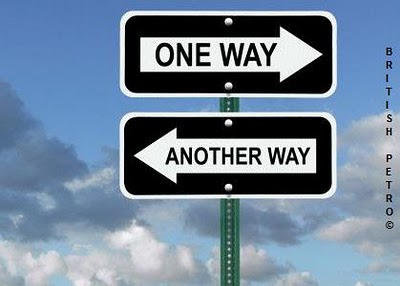I've heard that exact statement, over and over, starting in middle school or maybe elementary school. At first I took it as a compliment- people thought it was good that I was so good at math and science. But after a while it got old. "We need more girls in math and science." Really? NEED? Why does it matter? And I'm a little bit insulted at the idea that the reason I'm excelling in math classes is because I feel a duty to help out all the women. No, I excel at math because that's who I am, and it has nothing to do with gender.
-----------------------
I got the results from my PSAT (the standardized test that high school students take a year before they take the SAT). It said my score for the first section was in the 99th percentile- the highest percentile one can get. Oh no, I thought, that's too high, I'm a freak genius or something, this is bad.
It said my score for the second section was in the 98th percentile. What? A whole 1% of people scored higher than me? No way! I don't like that...
And that's when I realized I couldn't walk the line between being a nerd and a normal person any longer. Choose one or the other. And I chose to be a nerd, to be who I really am, not hiding my intelligence in order to appear more "normal", not afraid of what would happen if I didn't fit society's conventions.
I was happy. I fit in with the nerds. But it also meant hiding my femininity. Because if a girl is beautiful and feminine, well, it doesn't look like she's good at math, right?
-----------------------
"It's nice to see a girl winning the math award," one of the other parents said to my dad, after the annual awards night at my high school. But it made me angry. As if my femaleness is something I needed to overcome in order to be good at math.
-----------------------
At the chess tournaments in high school, it wasn't unusual for my opponents to make comments about playing against a girl, as if that meant they were guaranteed a win. I did okay, but not well enough to disprove anyone's stereotypes. But the top player from my school was also a girl, and she was really good.
And don't forget, the queen is the most powerful piece on the board.
-----------------------
"What's your major?"
"Math and electrical engineering."
"WOW! You're so smart! I could never do that."
I really never understood that response. I can't imagine myself ever majoring in anything else. So we're kind of in the same boat. The I-could-never-be-good-at-your-major boat.
-----------------------
My freshman year of college, I was in a calculus class with a decent mix of guys and girls. But as I moved into the higher-level math classes, the percentage of girls went down. Seemed to me like most of the girls just wanted to be math teachers and weren't interested in the really high-level elective classes. And I tried to judge who were the "real" math people and who weren't, based on how dorky or feminine they looked.
-----------------------
Four guys and I drove down to a 2-day math conference at another university. We got two hotel rooms for the night- one for me, and one for all 4 of them. Perks.
-----------------------
I arrived at lab a few minutes before the 3:00 lab section started. Some photographers from the university's PR department were also there, interested in taking photos for some promotional newsletter. One of them came up and asked me, "Are you a student in this lab? Because we want to be sure we have photos with girls working here in the lab."
"Actually, I'm one of the teaching assistants in charge here," I said. And wondered whether it was a good thing or a bad thing that they wanted to use me as a symbol of the diversity on campus.
-----------------------
I prayed in China to let God know what was at stake. God, if you call me to be a missionary, and you want me to switch majors... well... you know that looks bad, right? Because I'm a girl. If I drop out of math and engineering, people will see it as a confirmation of the stereotype that girls aren't actually good at that stuff.
(That's also the reason I knew I could never drop a class during my junior and senior years of college. There were many times I was the only girl in a class of maybe 15 students, and I knew that if I dropped, EVERYONE would notice, and maybe they would conclude that girls just usually aren't that good at those things.)
-----------------------
Also, this:
 |
| Image source. |
She gave me a red sticker and said I could put it on the front page of my answer sheet if I wanted. Because any women participating in this math contest are also eligible for an additional award. I thought about it and declined. I don't deserve any extra award. Just judge me by the same standard you judge the guys.
-----------------------
And I hope that feminism provides a way to make sense of all these experiences and feelings I've had, as a minority in my math and engineering classes. All the times people explicitly complimented me on it, to the point where it came across as condescending and (ironically enough) sexist. The stereotypes I've encountered, the stereotypes I use to judge other women. The way I've internalized a lot of that sexism.
I hope that feminism can provide a framework for understanding and addressing this, but it has to be more than just the "Yay! You're a GIRL in MATH!" that I've received my whole life. It has to be more than seminars on "how to get more girls into engineering." (And to be honest, the subject of women in math/science/engineering is not something I've heard discussed much within feminism.)
Because I've faced the stereotypes but never any explicit "no, you shouldn't study math." People always encouraged me to do what I was good at. Perhaps my experience is different than that of most girls. I don't know. But I've always felt like the extra encouragements and extra opportunities just for girls weren't really for me. I'm going to be awesome at your math contest regardless of whether there's any special incentive for girls. Maybe I'm not the target audience for those kinds of incentives. I don't know.
I hope that all students feel the freedom to study whatever subject they love. I don't like the statement "We need more girls in math and science"- instead I believe we need to not discourage anyone from pursuing their interests based on gender. Perhaps it is true that men are genetically better than women at math. Who knows? But even if the average man is better at math than the average woman, I am not the average woman. That average says absolutely nothing about me.
But it's not just genetic differences. There are stereotypes that hold women back. I feel like overall, they haven't held me back, but I'm very aware of them, and I even use them to judge other women- to judge another woman's math abilities by the amount of make-up she's wearing. And that's just WRONG, okay? But the sexism is so internalized and it goes so deep.
Does feminism have any ideas to address this? We'll see.
----------------
This post is part of the Feminisms Fest Synchroblog. Go over to Feminisms Fest: Why Wouldn't Feminism Matter? and read more people's posts on the topic "Why It Matters."



















